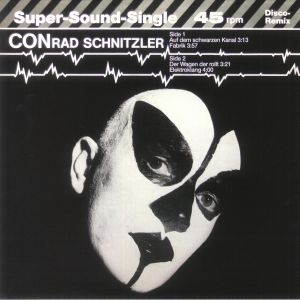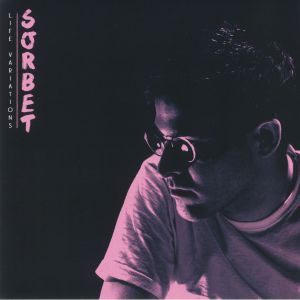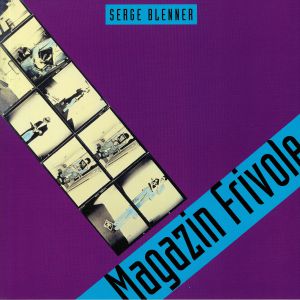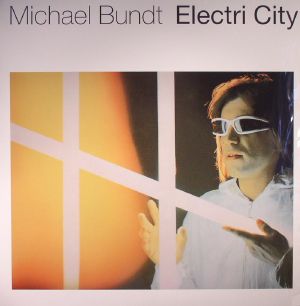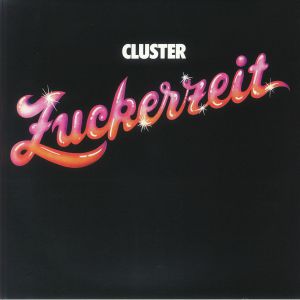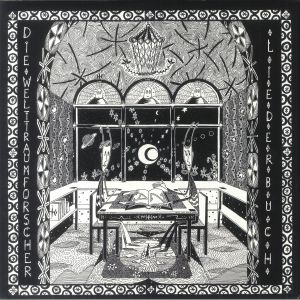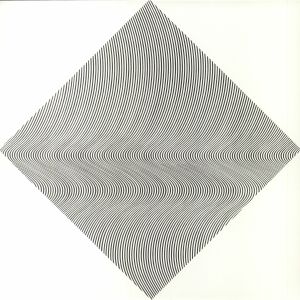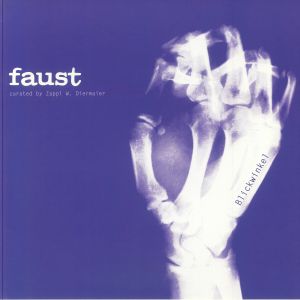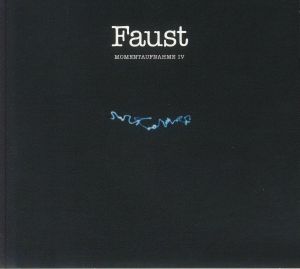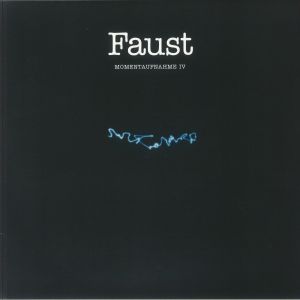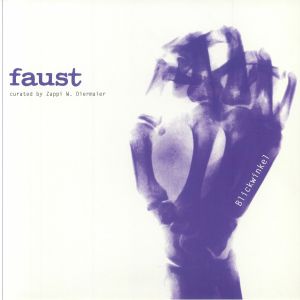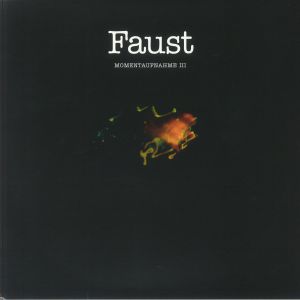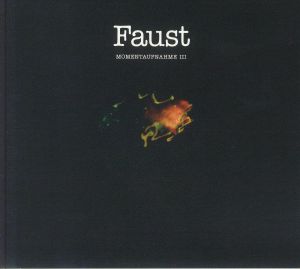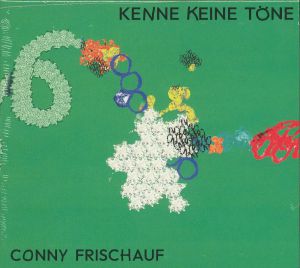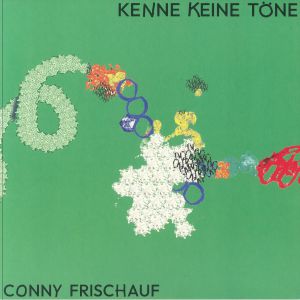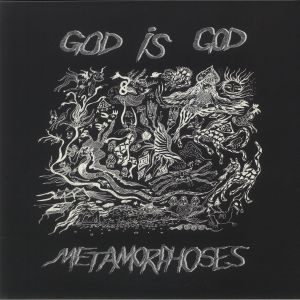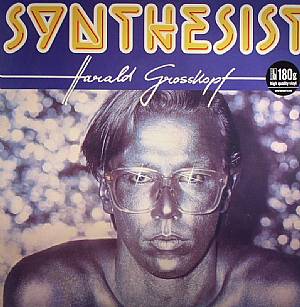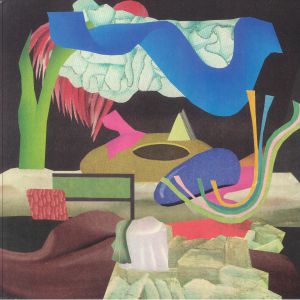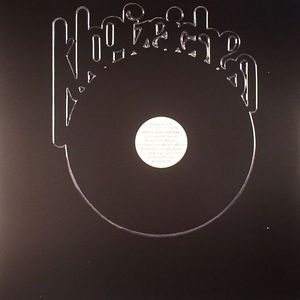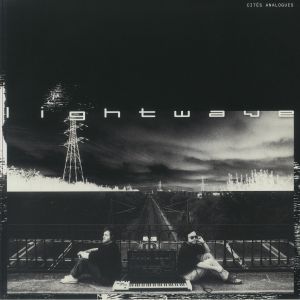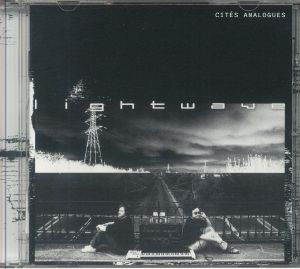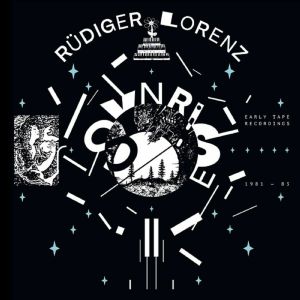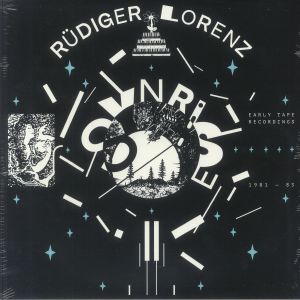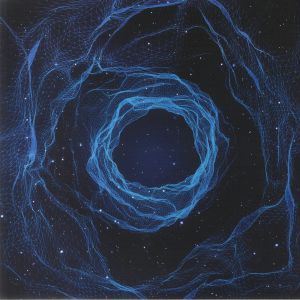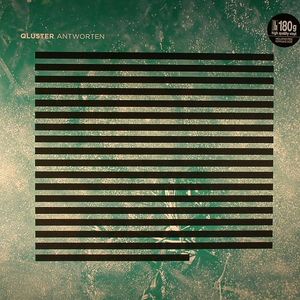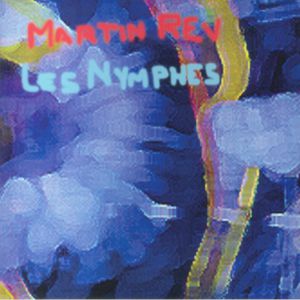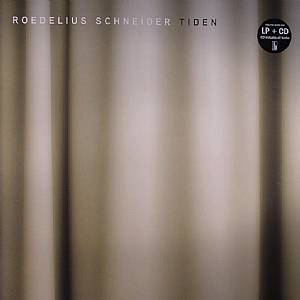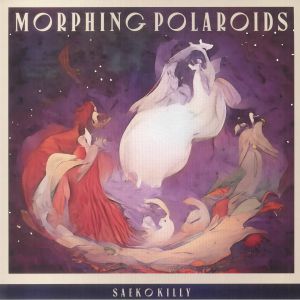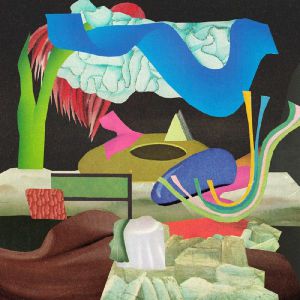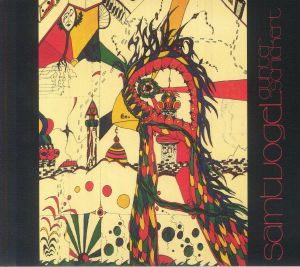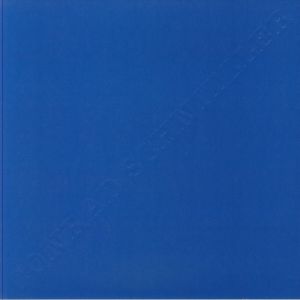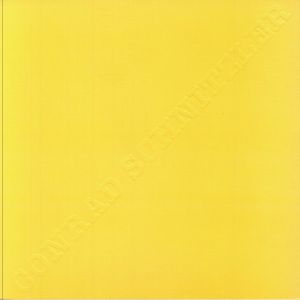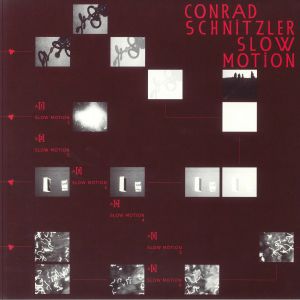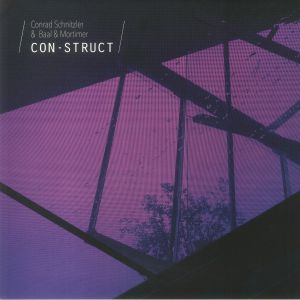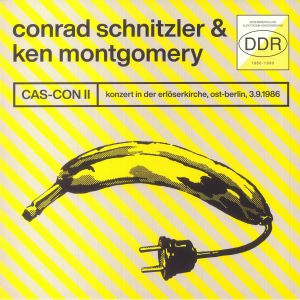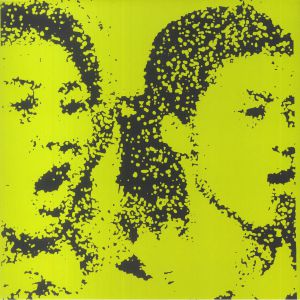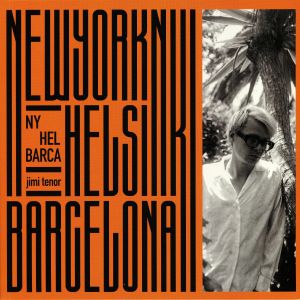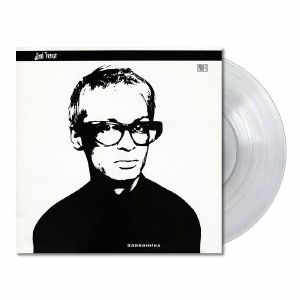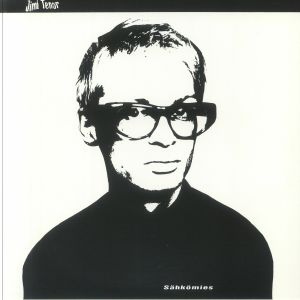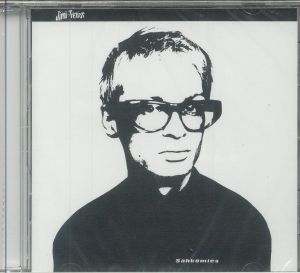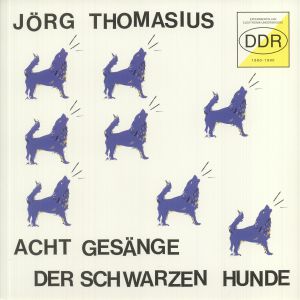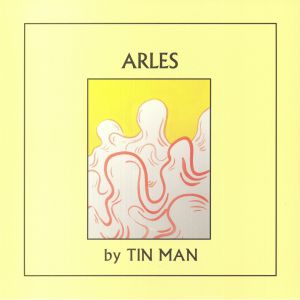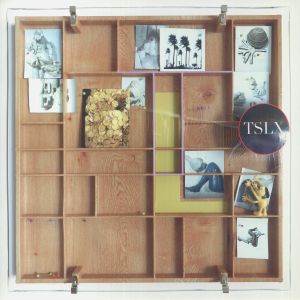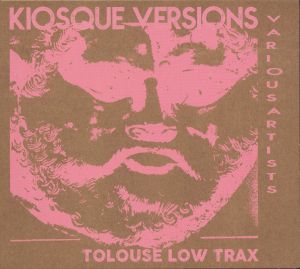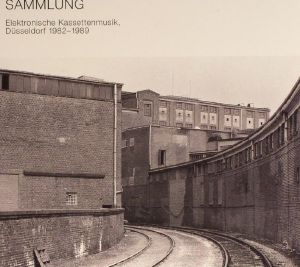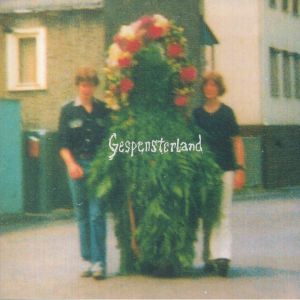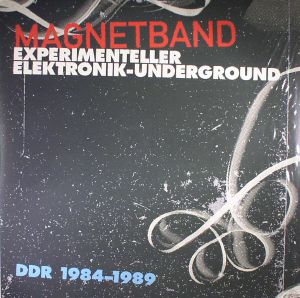Filter
Stock
Artist
Label
Featured
Release Title
Price
Back catalogue: Experimental/Electronic
Juno's full catalogue of Experimental/Electronic
Singles
in stock $25.13
Samtvogel (remastered) (limited hand-numbered red vinyl 12")
Cat: BB 475LTD. Rel: 05 Nov 24
in stock $29.81
Gespielt von: DJ ROCCA
in stock $17.67
in stock $11.32
Alben
in stock $30.92
Gespielt von: Ekoplekz
in stock $30.66
Zuckerzeit (50th Anniversary Edition) (limited hand-numbered 180 gram vinyl LP + insert)
Cat: BB 447LTD. Rel: 10 Jun 24
Review: Cluster's Zuckerzeit stands as a landmark in electronic music, showing the duo's innovative approach to ambient electronic soundscapes. Unlike their self-aware avant-garde contemporaries, Cluster's music emerges as a pure expression of their passion for electronic gadgetry and songwriting. The album's subtle shift in sound from their previous work heralds a more intriguing style characterized by bubbling ideas and electronic manipulation. Tracks like 'Hollywood' and 'Caramel' paint vivid pictures with gloriously chunky synthesizers and jerky drumbeats, evoking reflective and playful tones respectively. 'Rote Riki' ventures into experimental territory with alien-like synths and throbbing bass, while 'Rosa,' "Fotschi Tong,' and 'Marzipan' conjure images of ambient space exploration with colorful synthesizers and relaxed drumbeats. 'Caramba' and 'James' delve deeper into experimentation, showcasing Cluster's versatility. Closing with 'Rotor' and 'HeiBe Lippen,' the album maintains its pace, with motorik beats and droning sounds adding to the overall spacey atmosphere. Clocking in at under 40 minutes, Zuckerzeit is a dynamic journey through Cluster's boundless creativity, setting a new standard for electronic music.
… Read more in stock $31.20
Review: Talk about creating a universe for yourself. Die Welttraumforscher, or World Dream Explorer, is an imagined musical trio with cosmic tendencies conjured by the mind of Swiss electronic composer Christian Pfluger. Active since 1981, 41 years in and the project is still going very strong and admired by a cult legion of international fans alongside some of the most influential contemporary synth doyens.
Liederbuch is the first new material in some time, an event that will be celebrated by many. Largely rooted in psychedelic indie-tronica, downbeat lounge-worthy beats, and blissful acoustic alt-balladry, it's a beautiful collection showcasing the ingenuity inherent in the music of a truly enigmatic artist who, despite focusing largely on the same endeavour for four decades now, has never remained still for long.
… Read moreLiederbuch is the first new material in some time, an event that will be celebrated by many. Largely rooted in psychedelic indie-tronica, downbeat lounge-worthy beats, and blissful acoustic alt-balladry, it's a beautiful collection showcasing the ingenuity inherent in the music of a truly enigmatic artist who, despite focusing largely on the same endeavour for four decades now, has never remained still for long.
in stock $26.50
Review: It's absolutely mind-blowing that Faust released this in 1973. Well, if you know Faust then you know when they became active, and as such it's perfectly logical that they were putting records out when this was unveiled. However, the sounds it contains are so beyond the realms of what we associate with that age it's hard to understand how they ever conceived them.
Having said that, some tracks here are more 'normal'. For example the sweet acoustic folk-ish-ness of 'Flashback Caruso', or the strange, trippy jazz blues on 'Hermanns Lament'. But even these seem to have been born in a different world. Or parallel universe. Then you're given the cut and paste broken beat numbers like 'Don't!', and you realise just how ahead of its time this is.
… Read moreHaving said that, some tracks here are more 'normal'. For example the sweet acoustic folk-ish-ness of 'Flashback Caruso', or the strange, trippy jazz blues on 'Hermanns Lament'. But even these seem to have been born in a different world. Or parallel universe. Then you're given the cut and paste broken beat numbers like 'Don't!', and you realise just how ahead of its time this is.
Gespielt von: Juno Recommends Experimental
in stock $28.45
Review: Known for their pioneering Krautrock era from 1971 to 1974, Faust remain a symbol of innovation and avant-garde experimentation. This album encapsulates a moment of unfiltered, collective creativity, presenting six tracks that delve into industrial noise, eerie ambience, and psychedelic motorik rhythms. Under Diermaier's guidance, this iteration of Faust embraces spontaneity and a democratic approach to music, free from external influences. The creation of Blickwinkel involved Diermaier's drumming sessions at Dirk Dresselhaus's (Schneider TM) studio, accompanied by electronics expert Elke Drapatz. This unplanned, collaborative effort led to a range of auditory experiences, contrasting sharply with their previous release, Daumenbruch, which featured more extended, contemplative pieces. Listeners can anticipate a sonic whirlwind filled with drones, rhythmic clamor, and eclectic textures, accented by unexpected elements like baroque strings, lively horns, and trippy effects. Uwe Bastiansen (Stadtfisch) adds melodic layers that complement Dresselhaus's driving bass, infusing the album with its distinctive pagan soundscape. Faust's unwavering dedication to breaking new ground and crafting a truly original auditory experience remains nothing short of spectacular.
… Read more in stock $33.12
Can't Fly Away
25 Yellow Doors
Lieber Herr Deustchland
Schwindebek III
Children's Toy Etude
Begluckte Schlagbohrmaschine
Stay Or Leave
Das Meer
So Far (alternative version)
Transformationrolle
Woke Up Outside The Dust Bin
We Are The Hollow Men
in stock $17.67
in stock $29.55
Review: Bureau B's latest release, curated by Faust's founding member Zappi Diermaier and featuring a collective of musical collaborators including Gunther Wusthoff, continues the band's legacy of radical innovation. Faust, the iconic Hamburg group known for their pioneering role in Krautrock between 1971 and 1974, has consistently pushed boundaries with their avant-garde approach. Their early work is celebrated for its uncompromising and experimental nature, which remains influential today. The new LP, Blickwinkel, offers a fresh perspective on Faust's sonic exploration. This album captures a moment of spontaneous creation, merging industrial noise, unsettling ambience, and psychedelic motorik into a cohesive six-track experience. The record reflects the band's commitment to synchronicity and chance, embodying the spirit of their Krautrock roots while embracing contemporary dynamics. Recorded in a collaborative spirit with Zappi Diermaier on drums, Dirk Dresselhaus on bass, and Elke Drapatz handling electronic effects, Blickwinkel represents a continuation of their experimental journey. Unlike the previous Daumenbruch, which featured long-form compositions, this album delivers a more varied auditory experience with six distinct tracks. The session, held in a home studio, was characterised by a deep empathetic connection among the musicians, resulting in a diverse range of soundsifrom drones and delays to unexpected melodic interventions by Uwe Bastiansen. Each track disrupts traditional stylistic boundaries with elements like baroque strings, quirky horns, and dynamic phasing effects, creating a constantly evolving soundscape. Blickwinkel shows Faust's enduring ability to innovate and redefine their musical expression and their ongoing creative process.
… Read more in stock $35.07
in stock $28.71
in stock $16.56
in stock $17.13
in stock $20.74
in stock $29.81
in stock $28.17
in stock $21.82
Gespielt von: Daniel Nellstrum O'Bongo, Sacha Mambo (Macadam Mambo)
in stock $25.13
in stock $26.23
in stock $16.56
Cat: BB 474. Rel: 30 Jan 25
Review: Midway through the last decade, Bureau B reissued a kosmiche curiosity from cult synthesiser composer Rudiger Lorenz, Southland - a set inspired by idle daydreaming about the island nations of the southern pacific and the south Atlantic. Here, they return to the late artist's catalogue, presenting their pick of the music featured on the DIY tapes and records he self-released (usually in very small quantities) between 1981 and '83 - IE the period before Southland was recorded. Larger darker and moodier than that set, Lorenz delivers a synthesizer-heavy musical blend of contemporaneous influences that consistently delivers the goods. Our picks of a very strong bunch include the sparse and warped 'Chabomilla Sabinae', the Tangerine Dream-esque beauty of 'Dreaming of Saba', the electronic ambience of 'Independence' and the star-gazing drift of 'Anigre'.
… Read more in stock $15.07
Cat: BB 474LP. Rel: 05 Feb 25
in stock $27.89
Neuland (gatefold blue vinyl 2xLP + MP3 download code)
Cat: PBBLP 001. Rel: 12 May 23
in stock $33.42
Antworten (180 gram vinyl LP + MP3 download code)
Cat: BB 77LP. Rel: 01 Mar 12
Gespielt von: Juno Recommends Experimental
in stock $33.12
in stock $32.58
in stock $31.48
Gespielt von: GK Machine
in stock $30.66
in stock $16.29
in stock $14.91
Blau (50th Anniversary Edition) (limited hand-numbered translucent blue vinyl LP in embossed sleeve)
Cat: BB 103LTD. Rel: 10 Jun 24
Review: 'Conny' Schnitzler's name needs to be remembered by more people. Born on the cusp of World War II, he would prove instrumental in the post-war surge of sonic experimentation that took Germany by storm from the 1960s onwards, playing an integral part in West Germany's krautrock movement having already been an early member of seminal band Tangerine Dream and founding father of Kluster. But it's his solo work that really needs more attention. A proponent of the Dusseldorf school - arguably Germany's most important city for popular music in the late-mid-20th Century - in 1974 he released Blau, a bold record comprising two extended tracks, 'Die Rebellion Haben Sich In Den Bergen Versteckt' and 'Jupiter'. One feels like the late night synth soundtrack to rain-soaked city streets. The other as though we've opened the hatch and stepped out into retro outer space. Take from that what you will.
… Read moreGespielt von: Ekoplekz, Juno Recommends Experimental
in stock $30.92
Gelb (limited yellow vinyl LP in embossed sleeve)
Cat: BBLPLTD 196. Rel: 05 Nov 24
in stock $29.27
in stock $23.94
in stock $29.27
Cas Con II (LP + booklet)
Cat: BB 424LP. Rel: 12 May 23
in stock $30.66
Sprung Aus Den Wolken (reissue) (LP + insert)
Cat: BB 415LP. Rel: 21 Sep 22
Gespielt von: Juno Recommends Experimental
in stock $23.47
Review: Those who've discovered Jimi Tenor in the last two decades would be well advised to check out this fine early retrospective from the eccentric Finnish musician. It focuses on the early years of his career (1994-2001), when he was known for serving up a bizarre but brilliant take on jazz, easy listening and lounge music - sometimes mixed with contemporary electronic sounds - for both Sahko and Warp Records. The collection contains a number of skewed, must-have late '90s underground hits (see "Outta Space", "Year Of The Apocalypse", "Sugardaddy" and the wonderfully sleazy "Take Me Baby") but also some lesser-known gems, experimental outings and even a track made with the Riga Symphony Orchestra.
… Read moreGespielt von: Juno Recommends Broken Beat Nu Jazz
in stock $35.07
Sahkomies (30th Anniversary Edition) (limited hand-numbered clear vinyl LP)
Cat: BB 451LTD. Rel: 13 Aug 24
in stock $33.12
in stock $25.13
in stock $14.36
in stock $23.47
Review: Club scene doyen, dance music veteran, and rave culture hero Johannes Auvinen opts to depart from the dance floor, at least for the time being, and deliver Arles - an ode to the other side of the electronic-acid scene, those sounds that make most sense after the chaos and carnage of a party have subsided and you're safely home on the couch with you and yours and all dearest.
And it works as well as it should, with the experience both of living in that world and making anthems for it clearly evident in the overall production quality and ideas. Arles is a warm blanket, that friendly therapist, an album that understands where you've been because it was there too. Remarkably, despite what that may suggest, this is not ambient or particularly leftfield stuff. Instead, it's rhythmic, pop-infused electronica goodness, for want of a more succinct, less awkward turn of phrase.
… Read moreAnd it works as well as it should, with the experience both of living in that world and making anthems for it clearly evident in the overall production quality and ideas. Arles is a warm blanket, that friendly therapist, an album that understands where you've been because it was there too. Remarkably, despite what that may suggest, this is not ambient or particularly leftfield stuff. Instead, it's rhythmic, pop-infused electronica goodness, for want of a more succinct, less awkward turn of phrase.
Gespielt von: Stunty
in stock $26.23
Review: Detlef Weinrich is back with his fifth full-length album under the Tolouse Low Trax moniker. Now based in Paris after leaving Dussledorf, he heads in something of a new direction and brings heavy yet velvet sounds which replace the rawness of his earlier work. Tracks on Leave Me Alone bring razor-sharp rhythms to drifting cosmic melodies, there are slow and industrial drones and haunting pads, a signature sense of drum funk and much more besides. This is a great new sound for an artist always on the move.
… Read more in stock $26.23
Review: Paris-based Detlef Weinrich aka Tolouse Low Trax is back with a new collection, Kiosque Versions, that he has assembled himself and which takes in seven edits of his work (some big hits, some lesser known or overlooked tunes) by friends and treasured artists. Things kick off with his own edit of 'Subghosts' which is a dubby swagger, and the Grim Lusk dub version of 'Mik In Water' is also filled with delayed stabs and warm, dubby undercurrents. 'Rushing Into Water' (Joakim Elemental edit) has a tropical dub feel and liquid rhythm, 'Tristeros Empire' (Ido Plumes Blazer Quest mix) has train track-like percussion over jittery experimental beats and there are many more freaky delights besides.
… Read moreGespielt von: Alexis Le-Tan
in stock $28.71
Review: Detlef Weinreich's latest release as Tolouse Low Trax is something of a curio, albeit one that's predictably impressive and off-kilter. It's a compilation that boasts some of his own cuts, alongside edits and reworks by friends of tracks described by Bueau B as "hits that never took the charts by storm". Check first 'Subghosts (Tolouse Low Trax Rework)', a bizarre but brilliant fusion of modular electronics and head-nodding organic instrumentation, before admiring the sparse, hard-to-pigeonhole electronic experimentation of Simo Cell's edit of 'A Song and a Photo Novella', the Autechre-esque beats of 'Down Is Temporal (Beat Detectives Dawn Rerub)', and Joakim's club-ready revision of 'Rushing Into Water'. Further inspired excursions are provided by Ido Plumes (the throbbing techno psychedelia of 'Tristoeros Empire') and Froid (the trippy IDM digi-dub of 'Make Friends').
… Read more in stock $16.29
VARIOUS
Cat: BB 236. Rel: 07 Feb 17
in stock $16.56
Kirschstein - "Mouches Volantes Oder Die Tanzenden Mucken In Den Kristallischen Gebilden Des Menschenauges" (3:02)
in stock $30.10
VARIOUS
Cat: BB 253LP. Rel: 15 Feb 17
in stock $24.51

 USD
USD







